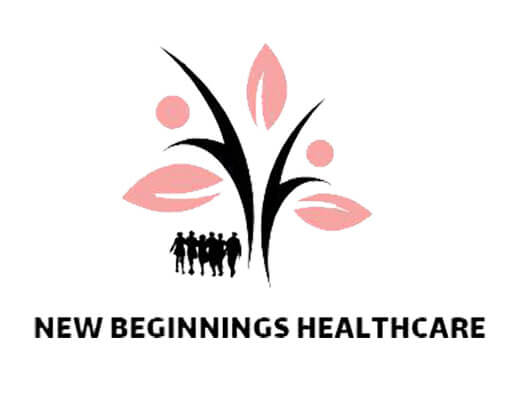Managing high blood pressure, also known as hypertension, is a critical step toward protecting your long-term health. Left uncontrolled, high blood pressure can lead to serious complications, including heart disease, stroke, and kidney damage.
The good news is that, for many people, key lifestyle and dietary changes can help in lowering blood pressure. This article outlines effective, evidence-based approaches for managing hypertension through healthier habits.
Lifestyle Changes for Lowering Blood Pressure
Here are some positive lifestyle adjustments to consider.
1. Commit to Regular Physical Activity
Exercise is one of the most effective ways to reduce blood pressure over time. Regular physical activity improves heart health, making it easier for the heart to pump blood. This reduces the strain on arteries and, consequently, lowers blood pressure.
The American Heart Association recommends 150 minutes of moderate-intensity activity per week. This includes brisk walking or cycling, for example.
You can also opt for 75 minutes of vigorous-intensity exercises, like running or aerobics, weekly. The key is consistency. Try adding small amounts of movement to your day, such as taking the stairs, stretching, or going for short walks.
2. Maintain a Healthy Weight
Excess weight is a major contributor to high blood pressure. Even slight weight loss can have a significant benefit. For every kilogram (about 2.2 pounds) lost, blood pressure may lower by around 1 mm Hg, according to research.
Focus on sustainable, long-term weight management strategies. This includes balancing calorie intake and staying hydrated. It also means prioritizing physical activity alongside a nutritious diet.
3. Manage Stress Effectively
Stress poses a hidden risk to blood pressure levels. When stressed, your body produces hormones like adrenaline, which temporarily spike blood pressure. Over time, chronic stress can harm your cardiovascular health.
Explore stress reduction techniques such as mindfulness meditation, yoga, and deep breathing exercises. You can also spend time on hobbies. Try detaching from technology for certain hours of the day, as overexposure to screens can contribute to stress.
4. Reduce Alcohol Consumption
Drinking alcohol can raise blood pressure, particularly when consumed excessively. Keep your intake moderate—current guidelines recommend no more than one drink per day for women and two for men. Reducing alcohol consumption not only helps blood pressure but also supports better sleep and weight management.
5. Quit Smoking
Smoking damages blood vessels by narrowing arteries. This can lead to higher blood pressure and a greater risk of heart disease.
Quitting smoking is challenging, but it is one of the most impactful steps you can take for your health. Talk to a healthcare provider about available resources. They may recommend nicotine replacement therapy or support groups, for example.
6. Get Quality Sleep
Poor sleep has been linked to elevated blood pressure and cardiovascular risks. Approximately 8 hours of sleep per night is ideal for adults. A regular bedtime routine can improve sleep quality, maximizing the 8 hours you spend asleep. Also, keep your bedroom environment peaceful and minimize caffeine intake later in the day.
Dietary Changes for Lowering Blood Pressure
By making intentional dietary choices, you can contribute to managing hypertension.
1. Follow the DASH Diet
The DASH (Dietary Approaches to Stop Hypertension) diet is designed to help with lowering blood pressure. It emphasizes foods rich in potassium, calcium, magnesium, and dietary fiber. It also promotes limiting sodium intake.
Key components of the DASH diet include:
- Fruits and vegetables
- Whole grains
- Low-fat dairy products
- Lean proteins
- Nuts and seeds
2. Lower Sodium Intake
Excess sodium is one of the leading contributors to high blood pressure. The recommended daily sodium intake for most adults is under 2,300 milligrams and ideally closer to 1,500 milligrams.
Cook at home as much as possible to control the amount of salt added to meals. Avoid processed foods like canned soups, frozen dinners, and salty snacks, which often contain hidden sodium. Use herbs and spices as natural flavor boosters instead of salt.
3. Increase Potassium-Rich Foods
Potassium can regulate the effects of sodium and relaxes blood vessel walls. This is how it helps in lowering blood pressure. Foods rich in potassium include bananas, oranges, avocados, spinach, sweet potatoes, and beans.
4. Limit Sugary and Fatty Foods
Added sugars and trans fats increase the risk of hypertension and other cardiovascular issues. Be conscious of hidden sugars in beverages like flavored coffee, soda, and energy drinks.
Similarly, reduce intake of fried foods and processed desserts. Instead, choose natural sweeteners like honey or fresh fruit to satisfy your cravings.
5. Stay Hydrated
Water helps regulate blood flow and maintain healthy blood pressure levels. Dehydration can cause blood vessels to narrow, which may lead to an increase in pressure. Drinking eight glasses of water per day helps you stay hydrated.
When to Visit a Healthcare Provider
It is important to see a healthcare provider if your blood pressure is consistently high. This is especially true if it does not improve after making healthy lifestyle changes.
Consistent high blood pressure might indicate a condition called resistant hypertension. Resistant hypertension means your blood pressure stays high even though you are taking medications to lower it.
Seek medical advice if you experience symptoms like severe headaches, chest pain, shortness of breath, or confusion. Your provider can help identify the cause of the problem and create a personalized treatment plan.
Regular check-ins are key to effective treatment for high blood pressure. They are also crucial for the management of resistant hypertension.
Best Methods for Lowering Blood Pressure in Monroe County, PA
Taking control of your blood pressure is not an overnight process. However, meaningful lifestyle and dietary changes can make a lasting impact. Developing healthier habits creates a strong foundation for lowering blood pressure.
Trust New Beginnings Healthcare to guide you. Call us at (484) 640-5400 or request a consultation today. Our dedicated team can help you create a tailored plan to lower your blood pressure and improve your health. We will ensure you receive the best hypertension treatment.
We look forward to serving you!
Sources:
https://my.clevelandclinic.org/health/diseases/4314-hypertension-high-blood-pressure
https://my.clevelandclinic.org/health/diseases/15601-resistant-hypertension
https://www.mayoclinic.org/diseases-conditions/high-blood-pressure/symptoms-causes/syc-20373410
https://www.mayoclinic.org/diseases-conditions/high-blood-pressure/diagnosis-treatment/drc-20373417

